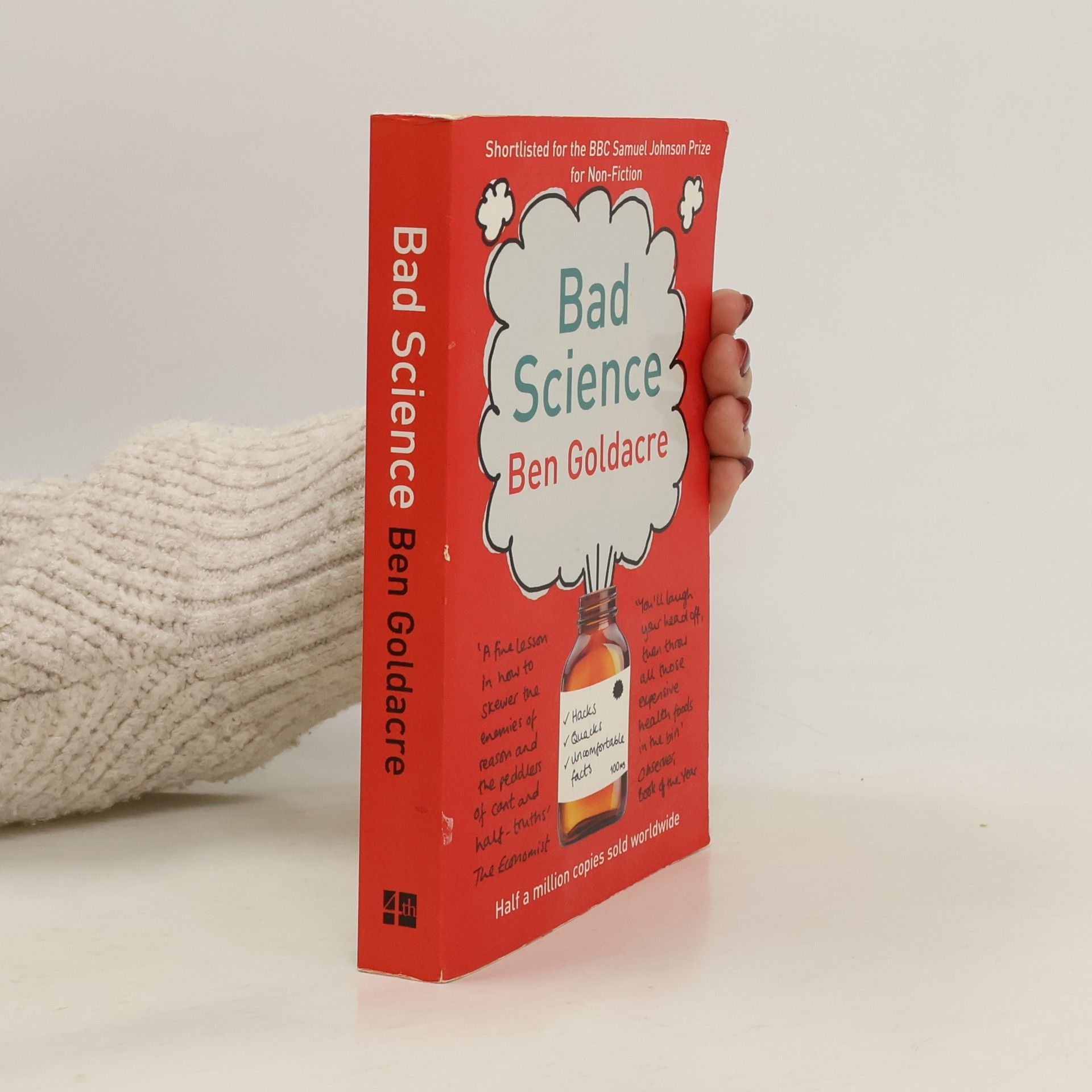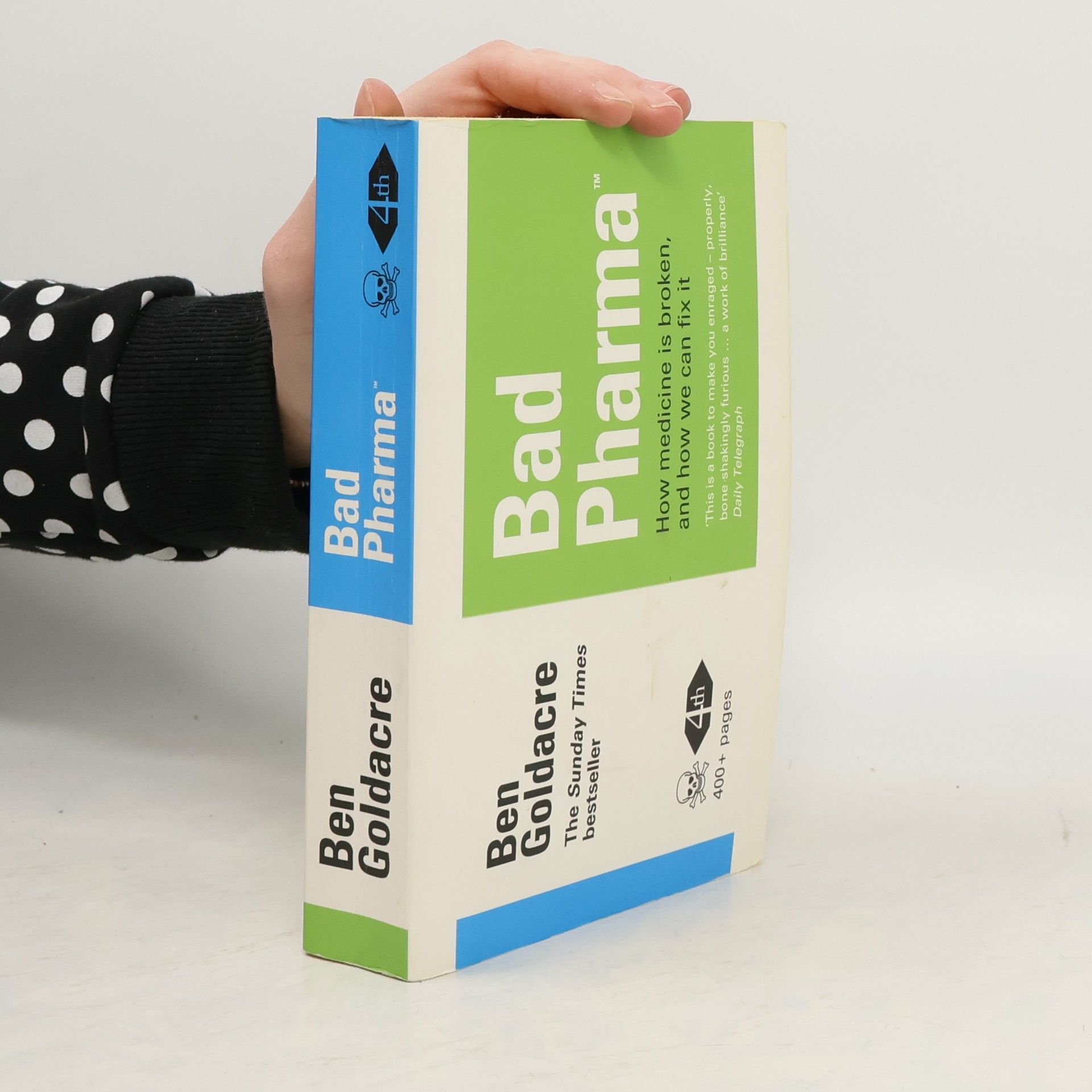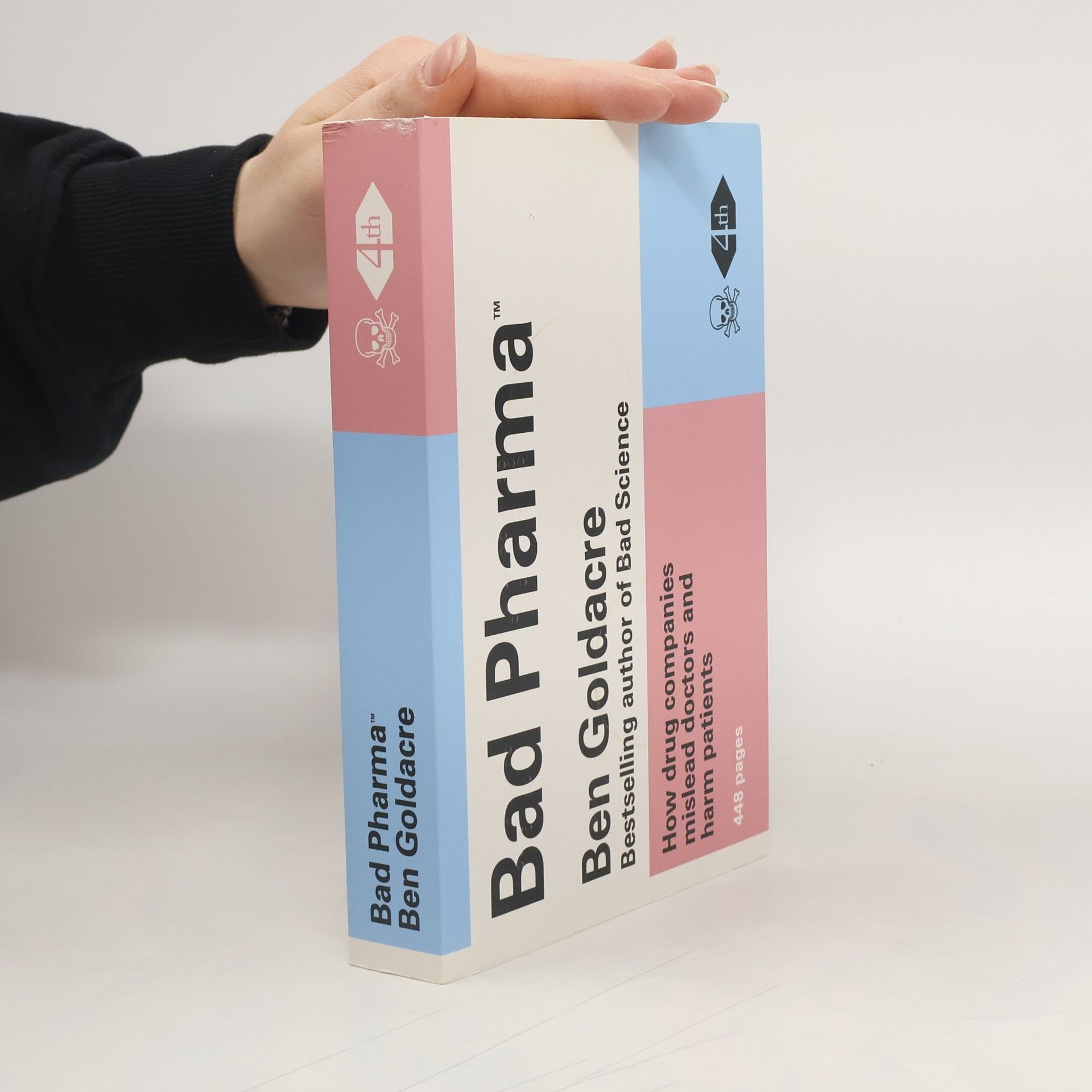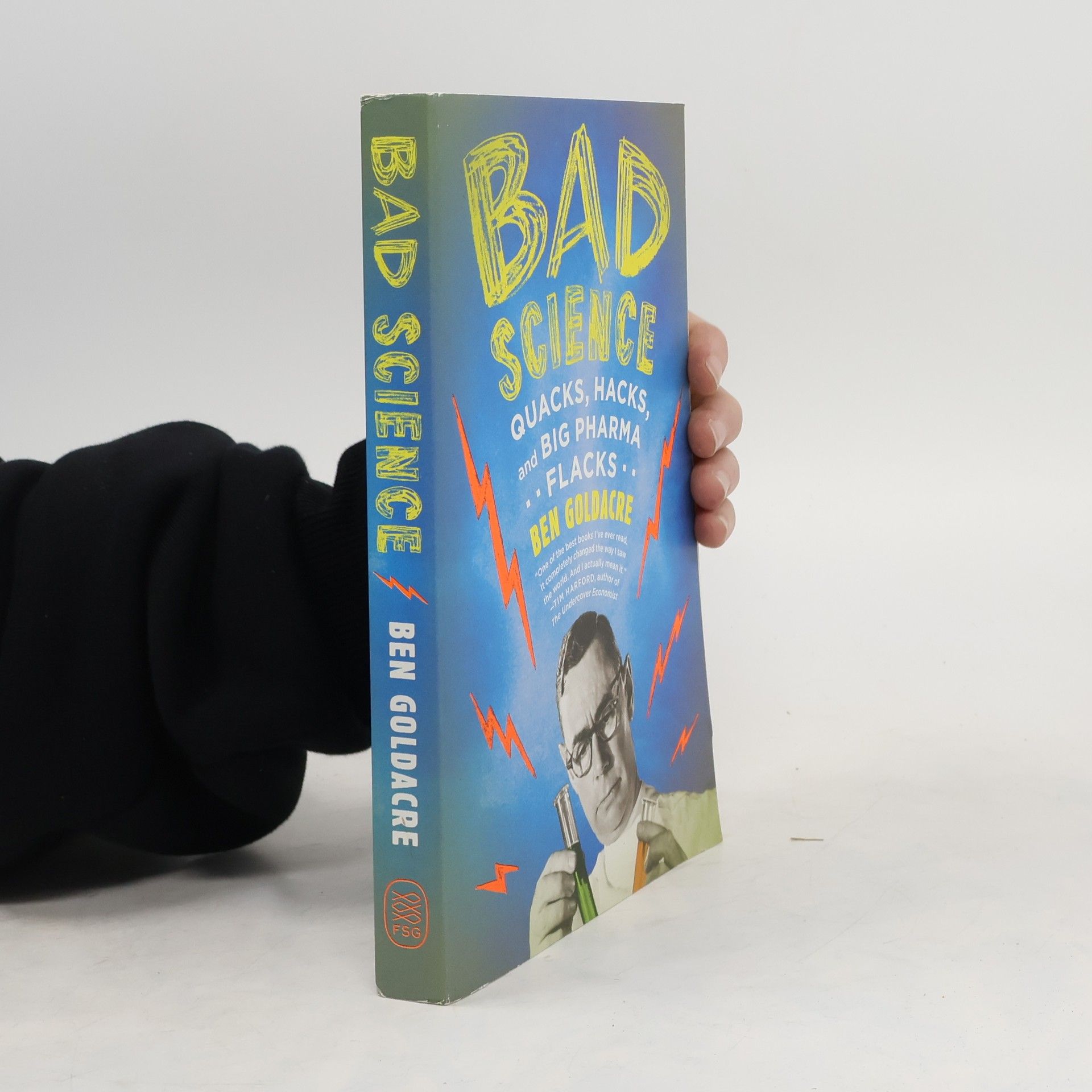Have you ever wondered how one day the media can assert that alcohol is bad for us and the next unashamedly run a story touting the benefits of daily alcohol consumption? Or how a drug that is pulled off the market for causing heart attacks ever got approved in the first place? How can average readers, who aren't medical doctors or Ph.D.s in biochemistry, tell what they should be paying attention to and what's, well, just more bullshit? Ben Goldacre has made a point of exposing quack doctors and nutritionists, bogus credentialing programs, and biased scientific studies. He has also taken the media to task for its willingness to throw facts and proof out the window. But he's not here just to tell you what's wrong. Goldacre is here to teach you how to evaluate placebo effects, double-blind studies, and sample sizes, so that you can recognize bad science when you see it. You're about to feel a whole lot better.
Ben Goldacre Livres
Ben Goldacre est un écrivain scientifique et psychiatre britannique, réputé pour son examen minutieux des preuves et des arguments scientifiques. À travers ses publications et ses chroniques, il s'efforce de déconstruire les mythes scientifiques, la désinformation et la pseudoscience. Son travail se caractérise par un langage accessible et un fort accent sur la pensée critique, outillant ainsi les lecteurs pour naviguer dans le paysage complexe des affirmations scientifiques. L'approche de Goldacre encourage la réflexion sur la manière dont les données scientifiques sont présentées et interprétées dans la sphère publique.







'Bad Science' hilariously exposed the tricks that quacks and journalists use to distort science, becoming a 400,000 copy bestseller. Now Ben Goldacre puts the $600bn global pharmaceutical industry under the microscope. What he reveals is a fascinating, terrifying mess. Doctors and patients need good scientific evidence to make informed decisions. But instead, companies run bad trials on their own drugs, which distort and exaggerate the benefits by design. When these trials produce unflattering results, the data is simply buried. All of this is perfectly legal. In fact, even government regulators withhold vitally important data from the people who need it most. Doctors and patient groups have stood by too, and failed to protect us. Instead, they take money and favours, in a world so fractured that medics and nurses are now educated by the drugs industry. Patients are harmed in huge numbers. Ben Goldacre is Britain's finest writer on the science behind medicine, and 'Bad Pharma' is a clear and witty attack, showing exactly how the science has been distorted, how our systems have been broken, and how easy it would be to fix them.
Bad Pharma
- 240pages
- 9 heures de lecture
Following the bestselling 'Bad Science', which mercilessly exposed the evils of bogus, pseudo-scientific remedies, Ben Goldacre puts the global pharmaceutical industry under the microscope.
Bad Science
- 384pages
- 14 heures de lecture
Everyone has their own 'bad science' moments, encompassing everything from the useless pie charts on the back of cereal boxes to the use of the word 'visibly' in cosmetics adverts. Full of spleen, Ben Goldacre takes the reader on a hilarious, invigorating and informative journey through the world of bad science.
I Think You'll Find It's a Bit More Complicated Than That
- 496pages
- 18 heures de lecture
The very best journalism from one of Britain's most admired and outspoken science writers, author of the bestselling Bad Science and Bad Pharma. In 'Bad Science', Ben Goldacre hilariously exposed the tricks that quacks and journalists use to distort science. In 'Bad Pharma', he put the $600 billion global pharmaceutical industry under the microscope. Now the pick of the journalism by one of our wittiiest, most indignant and most fearless commentators on the worlds of medicine and science is collected in one volume.
Die Pharmaindustrie ist durch und durch korrupt, und die Medizin ist kaputt. Ärzte wissen oft nicht, was sie verschreiben, und Patienten sind sich der Nebenwirkungen ihrer Medikamente nicht bewusst. Dies liegt daran, dass die Pharmaindustrie ihre Studien nicht offenlegt, während die Zulassungsbehörden die Konzerne schützen. Ben Goldacre analysiert in seiner scharfsinnigen und unterhaltsamen Untersuchung die Mängel der Medizin und die Korruption in der Industrie. Die Vorstellung, dass Pharmaforscher neue Wirkstoffe in unabhängigen Studien testen und strenge Standards für die Marktzulassung gelten, ist weit von der Realität entfernt. Goldacre, ein britischer Arzt und Bestsellerautor, beleuchtet das 600 Milliarden Dollar schwere Geschäft der Pillenindustrie und zeigt auf, wie negative Studienergebnisse oft verschwiegen oder manipuliert werden. Er beschreibt, wie klinische Studien in Entwicklungsländern durchgeführt werden und wie das Verschreibungsverhalten der Ärzte beeinflusst wird. Goldacre liefert keine Verschwörungstheorien, sondern fundierte Beweise, die die Unzulänglichkeiten klinischer Studien entlarven. Seine Analyse ist niederschmetternd und sollte von jedem gelesen werden, der sich für das Pharmageschäft interessiert.
Złe leki. Jak firmy farmaceutyczne wprowadzają w błąd lekarzy i krzywdzą pacjentów
- 440pages
- 16 heures de lecture
Fałszowane badania kliniczne, słabe obostrzenia prawne,choroby wymyślane jedynie dla zysku, oraz lekarze i naukowcy na usługach producentów pigułek – Ben Goldacre rozkłada na czynniki pierwsze branżę farmaceutyczną, oferując proste i skuteczne lekarstwo na jej uzdrowienie. Medycyna przestała spełniać swoją rolę. Podczas gdy pacjenci żyją w błogim przeświadczeniu, że podawane im leki są w pełni bezpieczne, a lekarze dokładają wszelkich starań, by aplikować jak najskuteczniejsze środki, światowy rynek farmaceutyczny wart 600 bilionów dolarów aż kipi od korupcji i chciwości. Lekarze i pacjenci potrzebują solidnych naukowych dowodów, by podejmować trafne decyzje. Tymczasem firmy farmaceutyczne fałszują wyniki badań własnych leków, wyolbrzymiają pozytywne wyniki, a niekorzystne dane zamiatają pod dywan.. Przemysł farmaceutyczny sponsoruje lekarzy, edukuje pielęgniarki, instruuje pacjentów. A efekt jest nieunikniony: cierpią pacjenci, którym się szkodzi zamiast ich leczyć.
